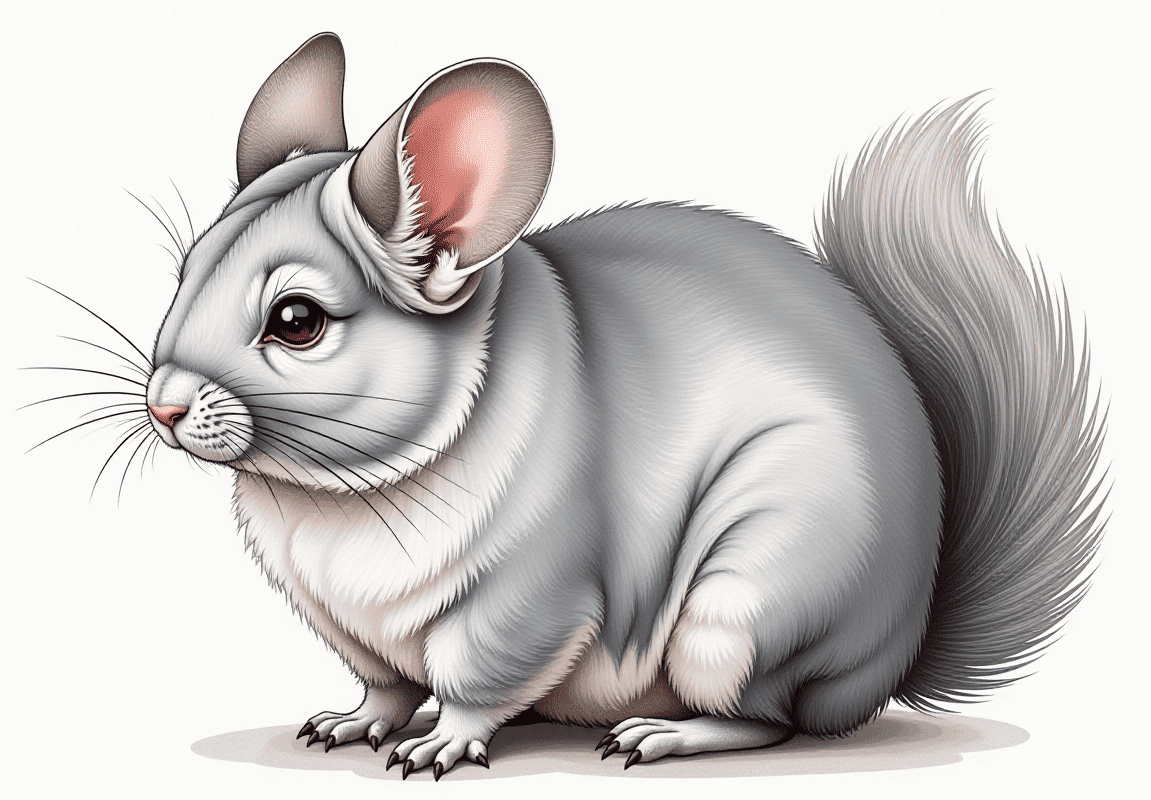Why Do Chinchillas Eat Their Poop?
If you’ve spent any time observing your chinchilla, you may have noticed a behavior that seems, at first glance, quite peculiar: they eat their poop. As strange as this might seem, this habit, known as coprophagy, is perfectly natural and even essential for their health. In this article, I’ll explain why chinchillas eat their poop, how it benefits them, and what you should know as a responsible pet owner.
Understanding Coprophagy in Chinchillas
Coprophagy is the act of consuming feces, and it’s common among several herbivorous and omnivorous animals, including rabbits and guinea pigs. For chinchillas, this behavior is a crucial part of their digestive process. Chinchillas have a specialized digestive system that allows them to extract maximum nutrients from their food, and eating their poop is an integral part of this system.
The Two Types of Chinchilla Poop
Chinchillas produce two types of feces:
- Pellets: These are the dry, hard droppings that you’re probably familiar with. They’re waste products that the chinchilla doesn’t need to reconsume.
- Cecotropes: These are softer, nutrient-rich droppings that chinchillas consume directly from their anus. Cecotropes contain essential vitamins, minerals, and beneficial bacteria that aid in digestion and overall health.
The process of eating cecotropes allows chinchillas to reabsorb nutrients that weren’t fully digested the first time around. This behavior is not only normal but also vital for their well-being.

Why Is Coprophagy Important for Chinchillas?
Here are the main reasons chinchillas eat their poop:
- Nutritional Recycling: Chinchillas’ diets consist mainly of fibrous materials like hay and pellets. Their complex digestive systems can’t extract all the nutrients in one pass, so eating cecotropes ensures they absorb critical vitamins like B-complex vitamins and vitamin K.
- Gut Health: Cecotropes are rich in beneficial gut bacteria, which help maintain a healthy balance in the digestive tract. This is especially important for preventing gastrointestinal issues, which chinchillas are prone to.
- Efficient Energy Use: By re-digesting their food, chinchillas maximize their caloric intake, which is crucial given their high-energy needs.
- Adaptation to Natural Habitats: In the wild, chinchillas often face limited food resources. Coprophagy allows them to survive in such environments by making the most of the available nutrients.
The Science Behind Cecotropes
Cecotropes are formed in a specific part of the chinchilla’s digestive system called the cecum. The cecum acts as a fermentation chamber where beneficial bacteria break down fibrous plant material. This process produces cecotropes, which are then reingested to provide essential nutrients and enzymes for further digestion. Without this step, chinchillas would lose access to these vital resources.

What Should You Watch For?
While coprophagy is normal, there are some signs that could indicate a problem:
- Excess Droppings in the Cage: If you’re noticing an unusual amount of uneaten cecotropes, your chinchilla might be stressed, unwell, or have a dietary imbalance.
- Changes in Feces Texture: Diarrhea or unusually soft pellets can be a sign of digestive issues that may need veterinary attention.
- Behavioral Changes: If your chinchilla stops eating their cecotropes, it could indicate an underlying health issue.
How You Can Support Healthy Digestion
Here are a few ways you can ensure your chinchilla’s digestive system stays healthy:
- Provide a High-Fiber Diet: Hay should make up the majority of your chinchilla’s diet. It promotes healthy digestion and ensures proper cecotrope production.
- Avoid Sugary or Fatty Treats: These can upset your chinchilla’s digestive system and lead to an imbalance in gut bacteria.
- Ensure Clean Living Conditions: A clean cage reduces stress and minimizes the risk of infections that could impact digestion. Use bedding that is safe and absorbent to keep their environment fresh.
- Monitor Their Behavior: Keep an eye on your chinchilla’s eating and bathroom habits. Regular veterinary check-ups can also help catch potential issues early.
- Offer Fresh Water Daily: Proper hydration supports overall digestive health. Ensure your chinchilla has access to clean, fresh water at all times.
- Minimize Stress: Stress can impact a chinchilla’s digestion and overall health. Create a quiet and secure environment for your pet to thrive.

Common Myths About Chinchilla Coprophagy
- Myth: Eating Poop Is a Sign of Illness: Reality: For chinchillas, eating cecotropes is a healthy and natural behavior. It’s only concerning if they stop doing it.
- Myth: All Poop Is the Same: Reality: Chinchillas produce two distinct types of feces, and only cecotropes are reingested.
- Myth: Coprophagy Can Be Stopped: Reality: Preventing this behavior would harm your chinchilla by depriving them of essential nutrients.
Conclusion
So, why do chinchillas eat their poop? The answer lies in their unique digestive system, which relies on coprophagy to extract vital nutrients, maintain gut health, and optimize energy use. This behavior, though surprising, is a testament to how fascinating and well-adapted chinchillas are to their natural environment.
As a chinchilla owner, understanding this behavior helps you provide the best care for your furry friend. By ensuring a proper diet, clean environment, and regular health monitoring, you can support your chinchilla’s natural instincts and keep them happy and healthy. Remember, eating their poop isn’t just normal—it’s essential for their survival.
